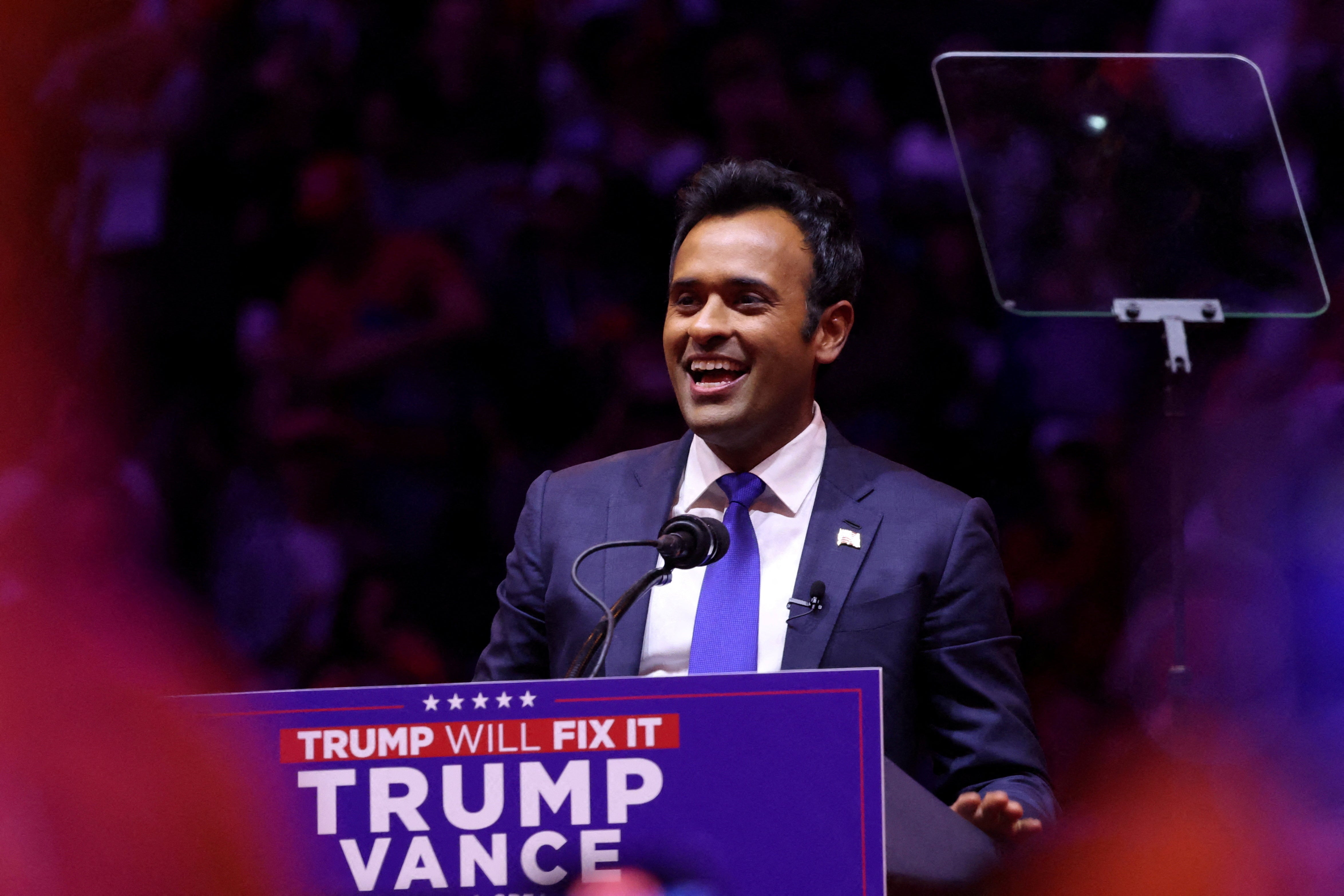Elon Musk and Vivek Ramaswamy have a new target in their war to make the government more efficient — daylight savings time.
The world’s richest person, who has been tapped by President-elect Donald Trump to lead the Department of Government Efficiency, or DOGE, took to X to push for the measure.
“All I want for my birthday is the abolishment of Daylight Savings Time,” James Stephenson wrote on X on Wednesday.
Musk responded, saying, “Looks like the people want to abolish the annoying time changes!”
“It’s inefficient & easy to change,” Ramaswamy responded to Musk.
Florida Senator Rick Scott, whom Musk backed in a failed bid for Senate Republican leader, added: “Daylight Saving Time is old, terrible and needs to go. Pass my Sunshine Protection Act to lock the clock & give everybody more sunshine!”
“Yes!” a seemingly enthused Musk wrote.
It remains unclear if the incoming Trump administration would support a change to abolish daylight savings time, but it would require congressional approval as well as by the president.
Daylight saving time goes from the second Sunday in March until the first Sunday in November when Americans change their clocks forward and back one hour to have more daylight hours during spring and summer.

Opinion on the matter is mixed, with 44 percent saying in a 2022 Monmouth University poll that they wanted permanent daylight savings time with later sunrises and sunsets. Only 13 percent said they wanted standard time to be permanent and 35 percent said they wanted to keep the clock changes.
Both local and federal lawmakers have argued for years to make daylight savings time permanent, but no single proposal has made it through both the House and the Senate.
In 2022, the Senate passed legislation that was set to make daylight savings time permanent last year but it didn’t go through the House. Bipartisan legislation introduced this year isn’t expected to be successful, Forbes noted.
Those in favor of permanent daylight savings time say that most Americans want more light in the hours after work and it may decrease energy use during the evenings. However, according to the American Medical Association, moving the clocks forward in March is connected to a rise in heart issues, mood disorders, and car crashes.
In addition, the American Academy of Sleep Medicine has said that permanent standard time is a better match for the body’s “internal clock.”
Meanwhile, in at least 30 states so far this year, lawmakers have considered legislation connected to daylight savings time, the National Conference of State Legislatures has found.
States cannot make daylight savings time permanent under current federal law, but 19 states have passed legislation that would do so if the federal legislation was changed. Some of the states have also taken into account what the states around them would do.
Arizona and Hawaii are the only two states with permanent standard time — the territories of Puerto Rico, Guam, and the Virgin Islands have made the same change.
While other states have indicated that they would like to do the same, such as Georgia, Idaho, and Tennessee, they have said that neighboring states would have to join them, Forbes noted.







